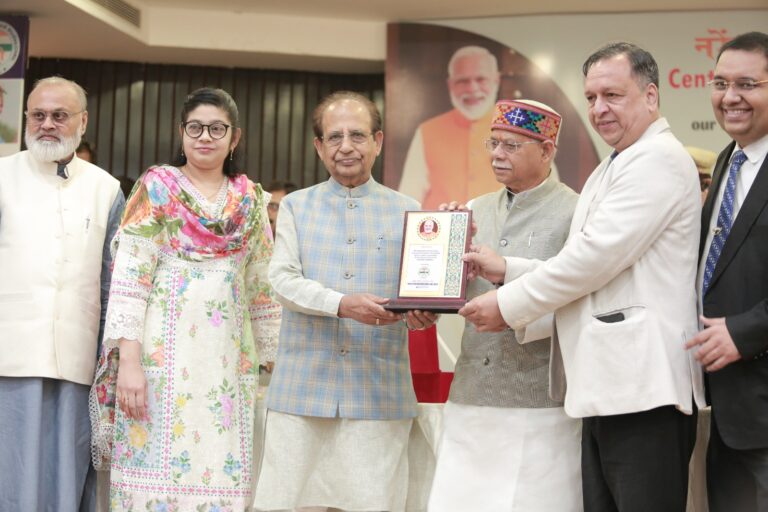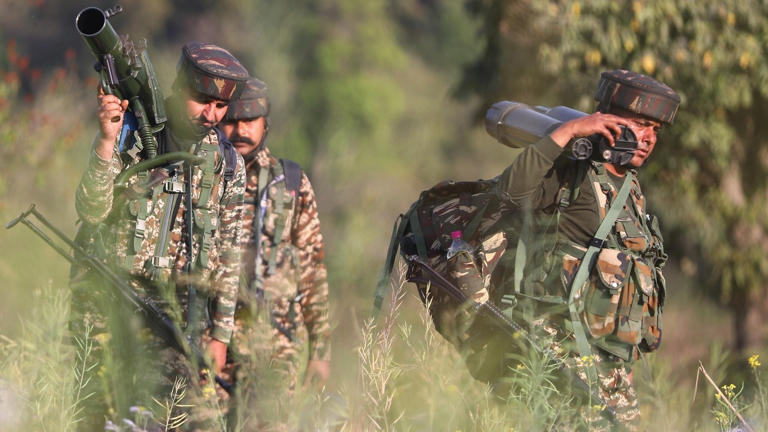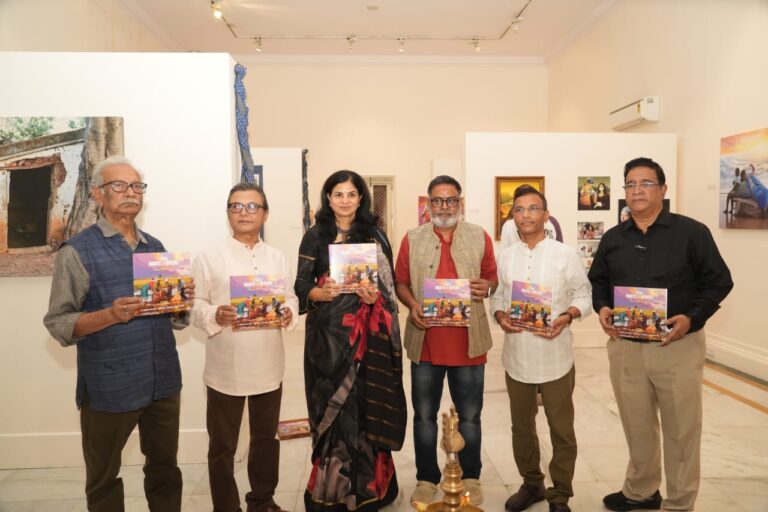PM Modi Speech at 5 PM: GST Cuts Announced, Essentials, Homes and Travel to Become Cheaper from September 22
On the eve of Navratri, PM Modi announced a “GST Bachat Utsav” promising relief for households and the middle class. Essentials, insurance, travel, and even housing are set to become more affordable. Read on to know what the Prime Minister said and how these changes affect you.

New Delhi: Prime Minister Narendra Modi, in a live address to the nation at 5 PM on Sunday, announced major changes to the Goods and Services Tax (GST). Calling it the “GST Bachat Utsav” (Savings Festival), the Prime Minister said the new rules will come into effect from September 22, coinciding with the start of Navratri.
The reforms simplify GST into just two main slabs – 5% and 18% – while luxury and “sin goods” such as tobacco, aerated drinks and luxury cars will attract 40%. Modi said this move will make everyday essentials, household purchases, travel and insurance cheaper, giving relief to millions of families.
“In this festive season, everyone will have more to celebrate. Sabka muh meetha hoga, sabki khushiyan badhegi,” the Prime Minister said, linking the announcement to upcoming festivals like Navratri, Durga Puja and Diwali.
Key Announcements in Modi’s Address
| Section of Speech | What Modi Ji Said (Simplified) | Context / Details | What It Means for You |
|---|---|---|---|
| Opening & GST History | “Before GST, taxes were messy – octroi, entry tax, sales tax.” “GST made ‘One Nation, One Tax’ real.” | Modi recalled the old complicated system and said GST simplified it in 2017. | Taxes are now simpler, and reforms continue to make life easier. |
| GST Bachat Utsav (Savings Festival) | “From tomorrow, we are launching GST Bachat Utsav – a savings festival.” | Linked to Navratri; nationwide campaign to highlight savings. | Festivals become more affordable, right from day one. |
| Tax Slab Changes | “Most items now only have 5% or 18% GST. Luxury/sin goods like tobacco and luxury cars stay at 40%.” “Over 400 items have moved from higher tax to 5% or zero tax.” | Essentials like food, medicines, soap are cheaper; luxuries stay expensive. | Everyday shopping costs less; luxury splurges cost more. |
| Economic Impact & Savings | “With income tax relief up to ₹12 lakh, households can save over ₹2.5 lakh crore annually.” | Benefits poor, middle class, and neo-middle class (25 crore people recently out of poverty). | More money in your pocket for groceries, bills, homes, or travel. |
| Everyday & Big-Ticket Relief | “Daily items like rice, toothpaste, medicines will be cheaper.” “Homes, bikes, cars, TVs, hotel stays, and flights will also cost less.” | Covers both small daily purchases and bigger festive buys. | You save on daily essentials and big-ticket items. |
| Swadeshi & Self-Reliance | “Buy Made-in-India products; support MSMEs.” “Make every home/shop a Swadeshi symbol.” | Modi encouraged citizens to promote local products and businesses. | Shopping local helps the economy grow and creates jobs. |
| Call to States & Broader Vision | “States are partners – promote investments and manufacturing.” “GST reforms simplify business and boost growth.” | Encourages states to attract investment and make business easier. | Growth for all, easier business, more opportunities nationwide. |
| Festive Wishes & Closing | “In this festive season, everyone’s happiness will increase.” “Happy Navratri – celebrate with savings and self-reliance.” | Ended with warm festival greetings; tied reforms to Navratri and Diwali. | Cheaper shopping + festival cheer = happier households. |
What Will Become Cheaper After September 22?
| Category | Old GST Rate | New GST Rate | Impact |
|---|---|---|---|
| Essentials (food, medicines, soap) | 12–18% | 5% or 0% | Lower daily expenses |
| Insurance (life, health) | 18% | 5–18% | Easier family protection |
| Vehicles & Appliances (cars, bikes, TVs, fridges) | 12–28% | 5–18% | Relief on big purchases |
| Travel & Hospitality (hotels, flights) | 18% | 5–18% | Cheaper holidays |
| Luxury/Sin Goods (tobacco, luxury cars) | 28% | 40% | Higher cost, discourages excess |
Economic Impact
The Prime Minister said the combined effect of GST cuts and recent income tax reliefs (with exemption up to ₹12 lakh) will put over ₹2.5 lakh crore back into the hands of citizens annually. He highlighted that this would especially help India’s “neo-middle class” – 25 crore people who have recently come out of poverty – as well as the traditional middle class.
Also Read: Uri attack 2016 Explained: How it happened and Why it matters
Push for Swadeshi
Alongside tax relief, Modi urged people to buy Made-in-India products, support local MSMEs, and turn their homes and shops into “symbols of Swadeshi.” “We are moving forward with the mantra of Nagrik Devo Bhava,” he said, appealing to citizens and states to push for investment, manufacturing, and a self-reliant (Aatmanirbhar) Bharat.
Political & Public Reactions
While BJP allies welcomed the announcement – Uttar Pradesh Chief Minister Yogi Adityanath called it a “historic Diwali gift” – opposition leaders, including the Congress, criticized Modi for “taking sole credit” for GST. Social media reactions were largely positive, with users praising cheaper essentials and travel, though some raised concerns about jobs and rising global uncertainties.
Also Read: Who Was Captain Vikram Batra? Life, Kargil War Heroics and Love Story Explained





